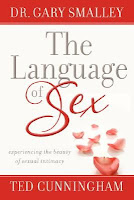 I often find books that I really appreciate reading. Very rarely I read a book that I wish I had written – or one that communicates the thing that “one day I’ll write a book” about. Michael Klassen’s Strange Fire, Holy Fire is one of those.
I often find books that I really appreciate reading. Very rarely I read a book that I wish I had written – or one that communicates the thing that “one day I’ll write a book” about. Michael Klassen’s Strange Fire, Holy Fire is one of those.
My Christian background has two roots – Pentecostal/Charismatic in my teens and early twenties, and a strong reformed theological foundation after that. Oftentimes these two camps are at loggerheads and that saddens me. I have learned much from both and I have seen how a strong church and a strong spirituality is one which brings Word and Spirit together.
I believe this is similar to Klassen’s framework. Like him I am both a critic and an apologist (page 12) of the charismatic movement. He does this well. This is why the book is called “Strange Fire, Holy Fire” – there is much in the charismatic movement that is strange, but there is also much that his holy. Sometimes things are both!
Klassen defines the nuances and variations within the Charismatic Movement – a useful quick insight for those who lump all “happy clappies” together and so often miss the point. He then goes through some of the key charismatic theological and cultural distinctives. Many of his conclusions I share – I was saving them up for my own book, “one day”!
With regard to tongues, for instance, he critiques the way in which tongues are made the “litmus test” (page 28) and how they are often used as a disunifying factor rather than a building-up resource (page 29). Yet he delights in the gift much like I do:
“Tongues was, and is, a very helpful gift that has enabled me to pray about situations when I didn’t know what to pray. It has served as a weapon in spiritual warfare and has given me insight into God’s ways. And it has definitely cultivated a deeper, more intimate walk with Christ.” (page 29)
His take on theological study, and in particular, his delight in the study of church history, matches my own thoughts:
“… as we study church history, we discover that many of the challenges and false teachings we face today have appeared sporadically since the first Pentecostal movement (in Acts 2). Why repeat their mistakes and struggles when we can avoid them?” (page 53)
His consideration of charismatic “hype” and emotive manipulation is a critique I share (for instance in my analysis of the Todd Bentley phenomenon). He paints John Wimber as a positive example:
“Then a person nearby started weeping. Then another. Then another person dropped to the ground, slain in the Spirit. By the time the meeting ended, most of the people at the front were either weeping or lying on their backs under the power of the Holy Spirit. Wimber, however, hardly said a word, and hadn’t laid a hand on anybody.
“God doesn’t need someone to whip the crowd into a frenzy in order to pour out his Spirit.” (page 57)
And he makes the point that is close to the heart of my own kerygma that “power comes through weakness (really!)” (page 59).
Klassen is honest about the seduction of power and the drives in leadership that can make it defensive or self-focussed. Here is another echo of my own experience:
“Our heavenly Father appointed Jesus – not the pastor – to be the head of the body. News flash! God never intended the life of the church to revolve around the pastor. Nor should it revolve around the body. The intended focus of the church is Jesus, its head.” (page 68)
I share his broad view on the gift of prophecy – drawing a similar line on that gift’s application and excess, it’s misuse by the overly-charismatic and its unfair dismissal by the cessationist-leaning who expect 100% accuracy from prophetic words with no provision of training or support for their prophets (page 85).
His critique of the prosperity movement (compared to deism on page 138 and superstition on page 147) is adequate. He defends experience, but does not overplay it, as an input to spiritual growth and theological understanding (page 184). And he recognises spiritual warfare in a manner that I appreciate and understand from my own personal experience:
“On a personal level, agree to step into Christian leadership and immediately you’ll sense an invisible taget on your back… Anyone who denies the reality of the demonic hasn’t read the Gospels closely enough.” (page 213)
I am with him as he shows how spiritual warfare is waged by focussing on Jesus, not the enemy. Jesus is the armour of Ephesians 6 (page 221).
While it is well-balanced, this isn’t a rigourous book. It has theological holes and the odd mis-placed anecdote or illustration. The various exegeses are adequate but not in-depth. There is still room for me to write my own book which would have a more theological flavour 🙂
But I share most if not all his conclusions. I will be lending this book to some of my more “out there” friends on both sides of the spectrum so that they can understand that there is life – much life – in the centre, bridging this particular divide, worshipping our Lord in Spirit and in Truth.












